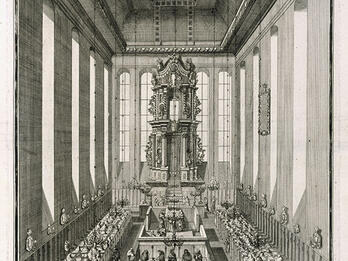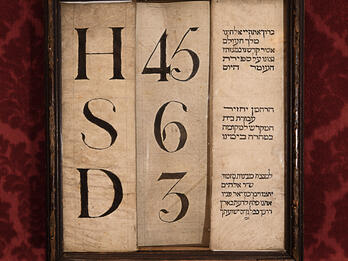Me-‘am lo‘ez (From a People of Foreign Tongue): On Fighting in Synagogue
Regarding those who fight one another inside the synagogue over the seats which each one has designated for himself, as when one is late in arriving and finds that another person is sitting in his seat, he shouts at him. The result of this is that the one dishonors the other, and they hit each other, as some do, because they have little good sense. However, they must know that even though the proper way is for each one to know his seat and to designate it, so he will always sit there—because everyone who has a seat designated for saying his prayer, the God of Abraham will come to his aid. [ . . . ] Still, if it happens that a man came and found another sitting in his seat, it is not beneficial for him to start a fight with him because of this. All the more so, a person is not permitted to dishonor his ḥaver [friend, fellow Jew], especially in the synagogue, which is called the bet ha-mikdash [Holy Temple]; even to say things there that are vain [i.e., idle talk] is a big sin, whether it be on a Sabbath or on a weekday. And speaking on the Sabbath in the synagogue has another separate prohibition, more serious than during the week, because it is counted as if it is desecrating the Sabbath [ . . . ]. And if this is only because of speaking, how much more so because of fighting in the synagogue? For as R. Joshua ben Levi says, the one who disrespects his friend before a rabbinic scholar [talmid ḥakham] is called epikoros—heretic—because he has demonstrated that he also disrespects the rabbi. For if he had honored the Law, he would not have had the courage to disrespect his comrade in front of the haham [rabbi]. And this goes to prove, regarding one who disrespects his ḥaver in the synagogue, that it is proper to call him an epikoros because this is called showing contempt for the sacredness of the synagogue, and his punishment will be very great.
Credits
Published in: The Posen Library of Jewish Culture and Civilization, vol. 5.




